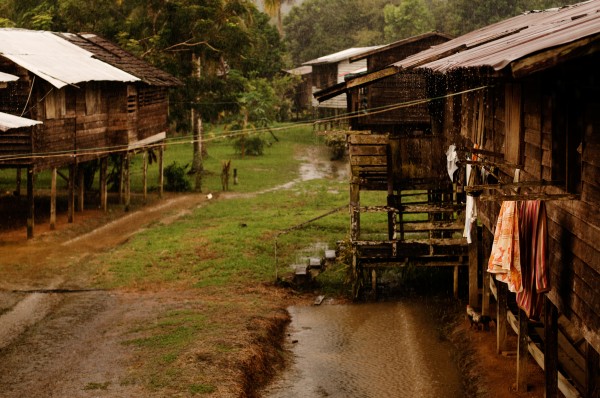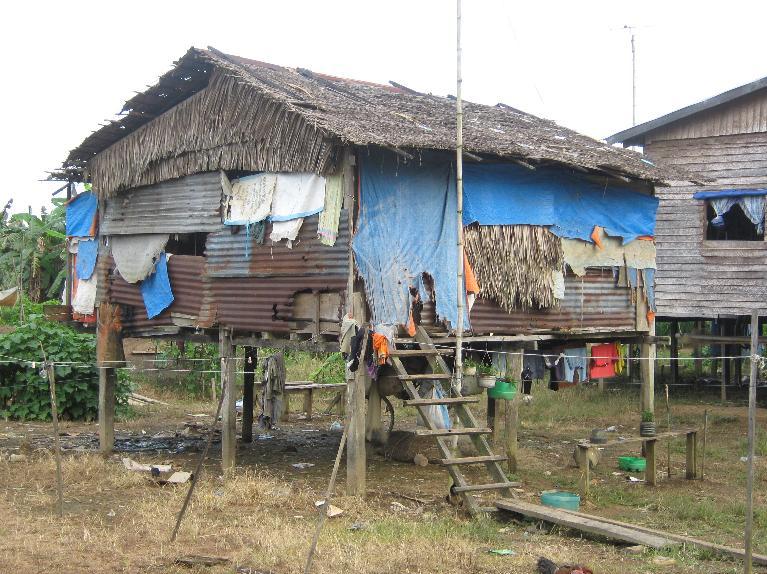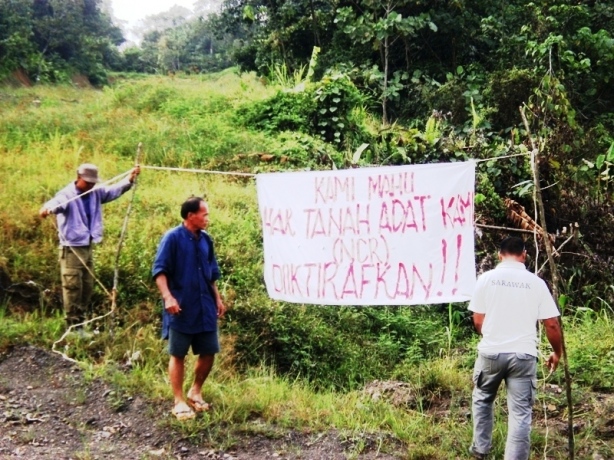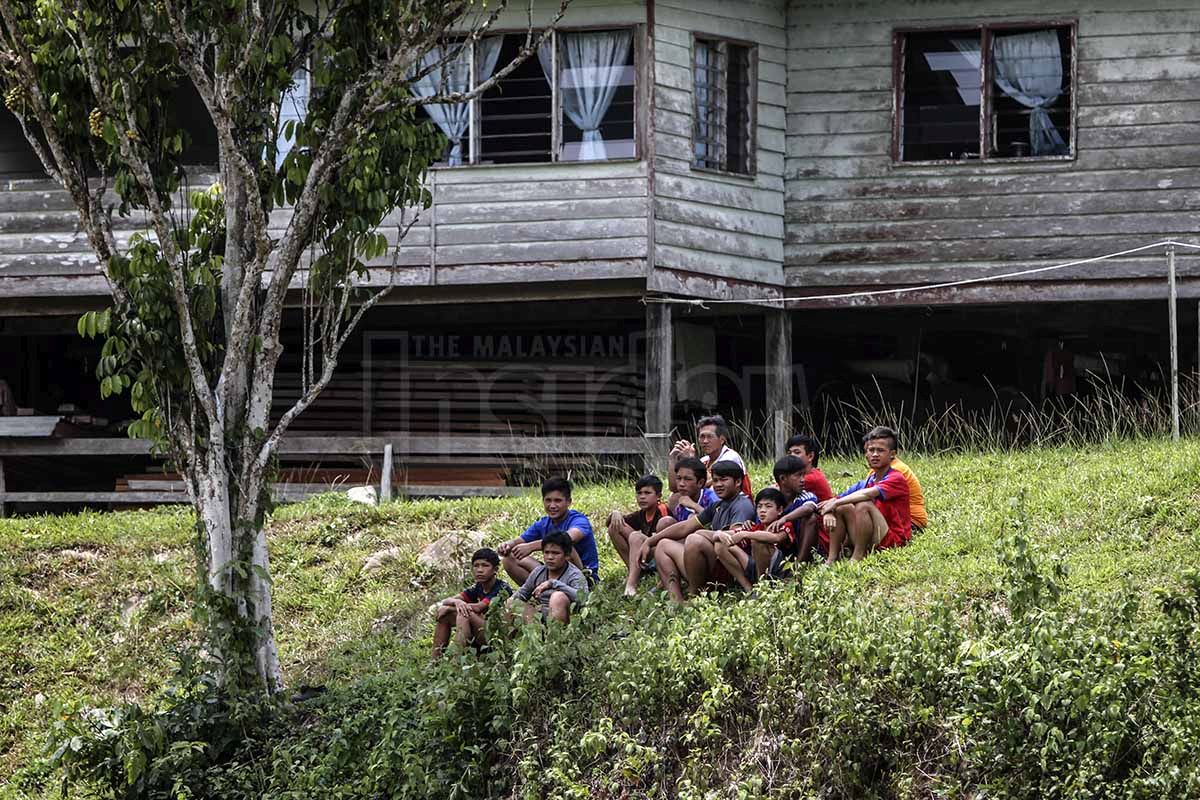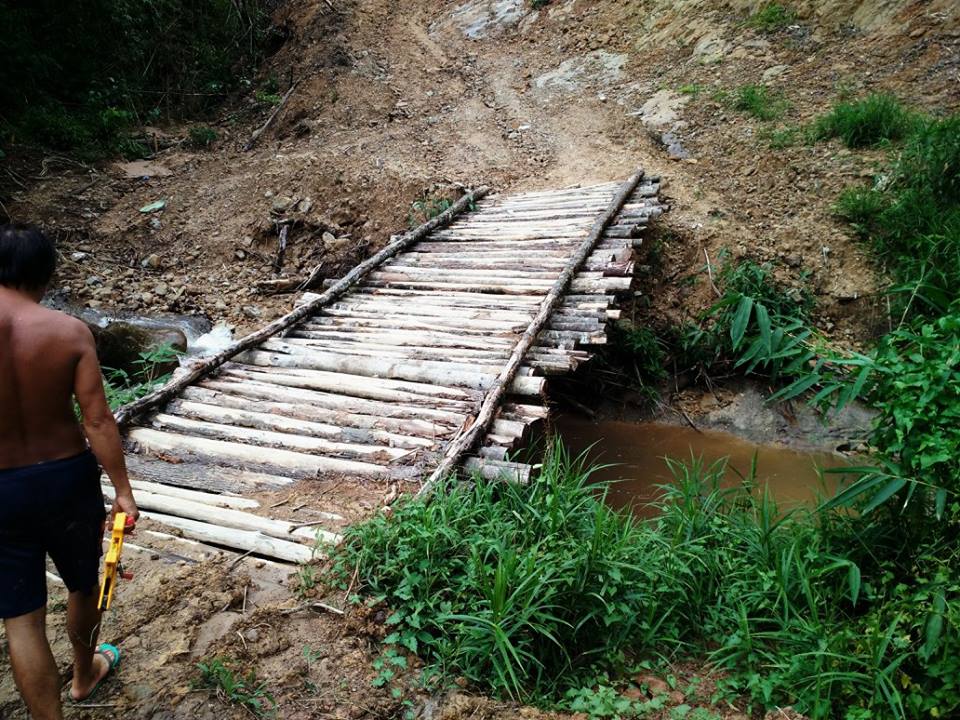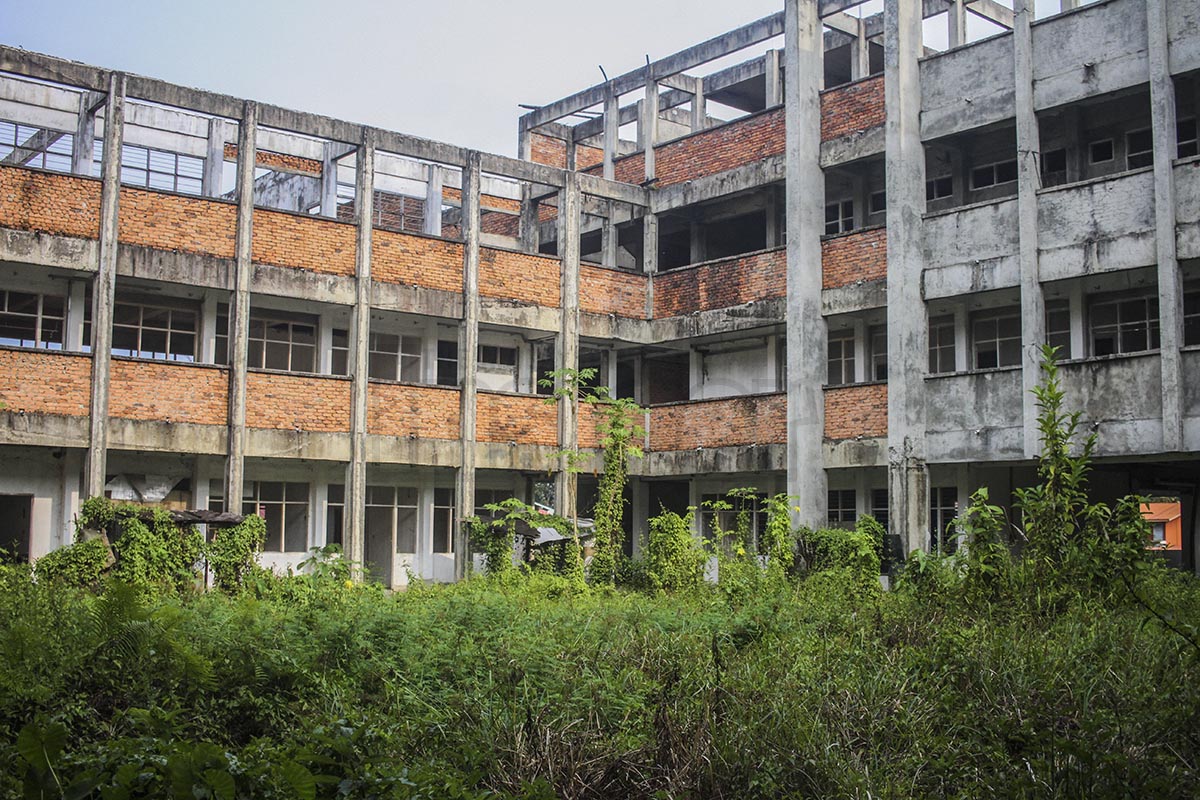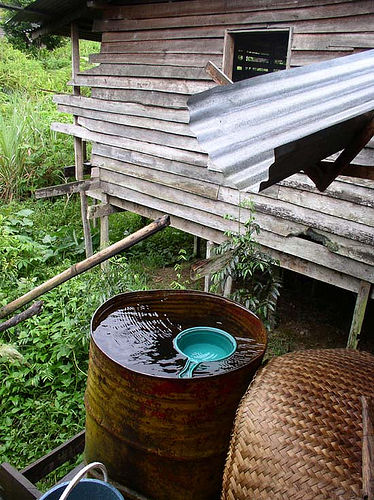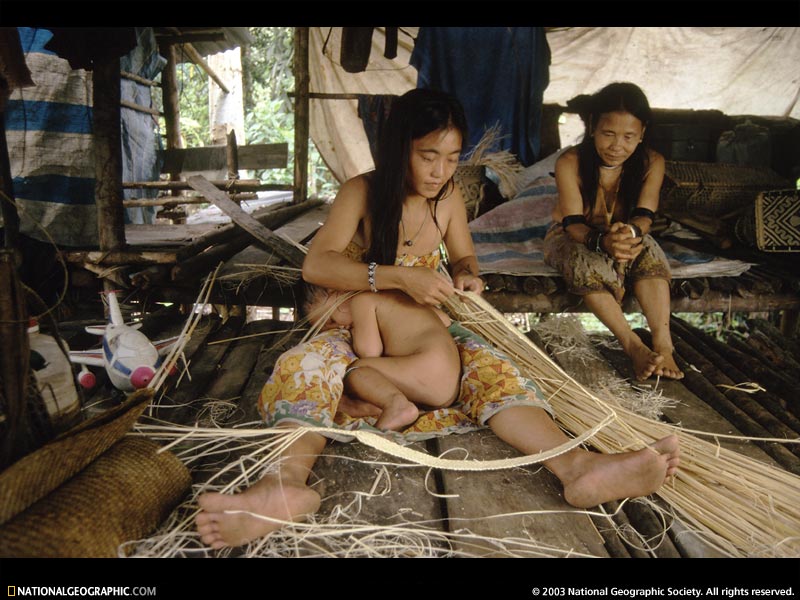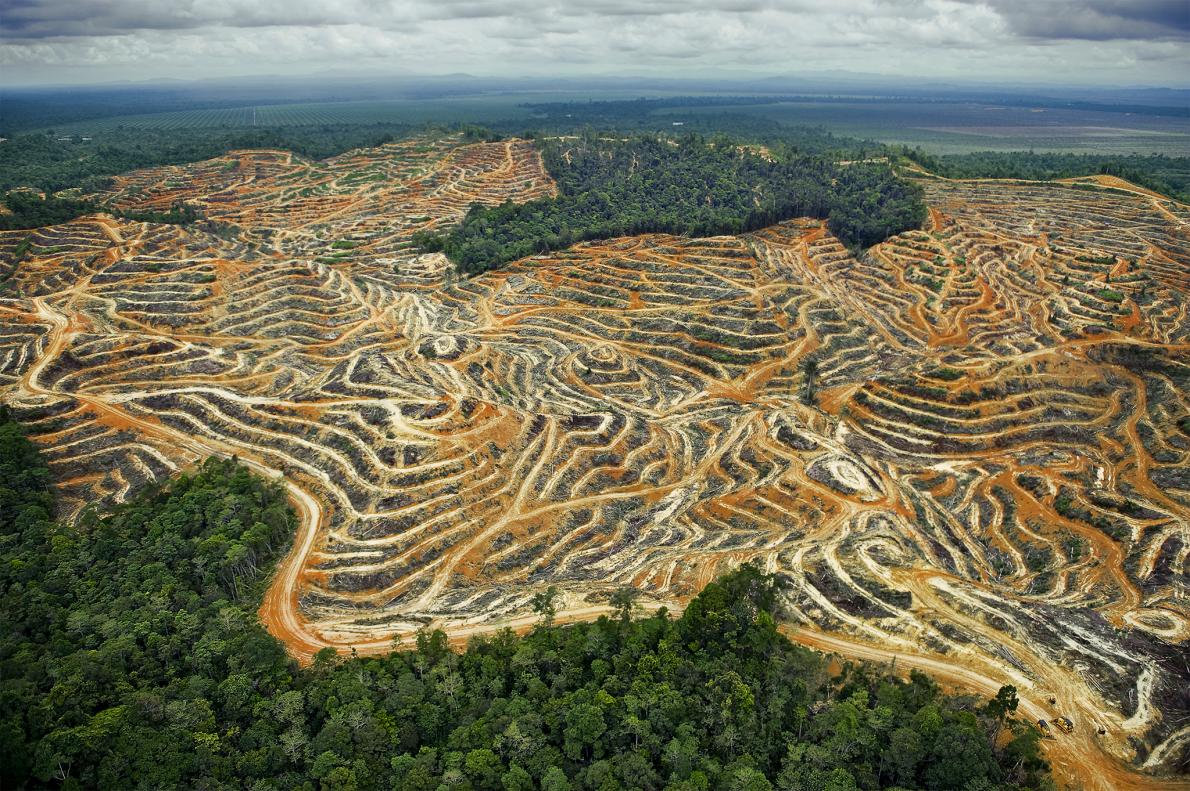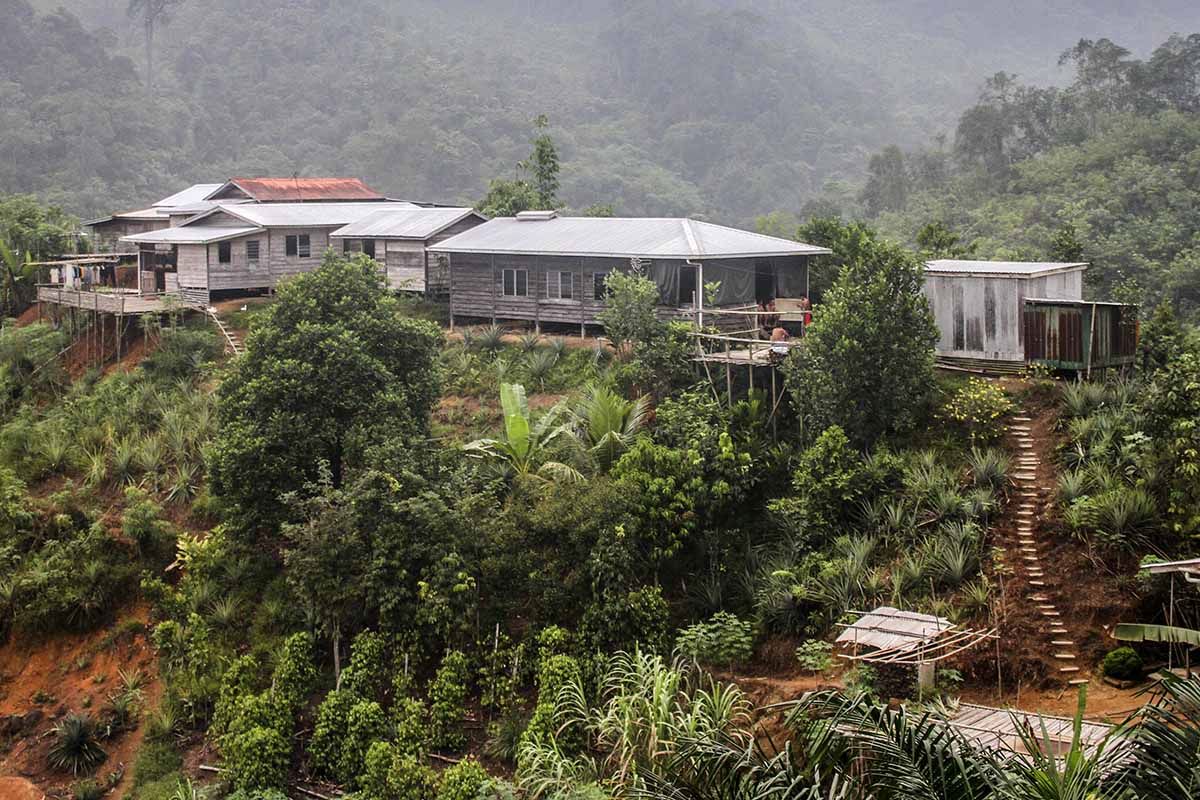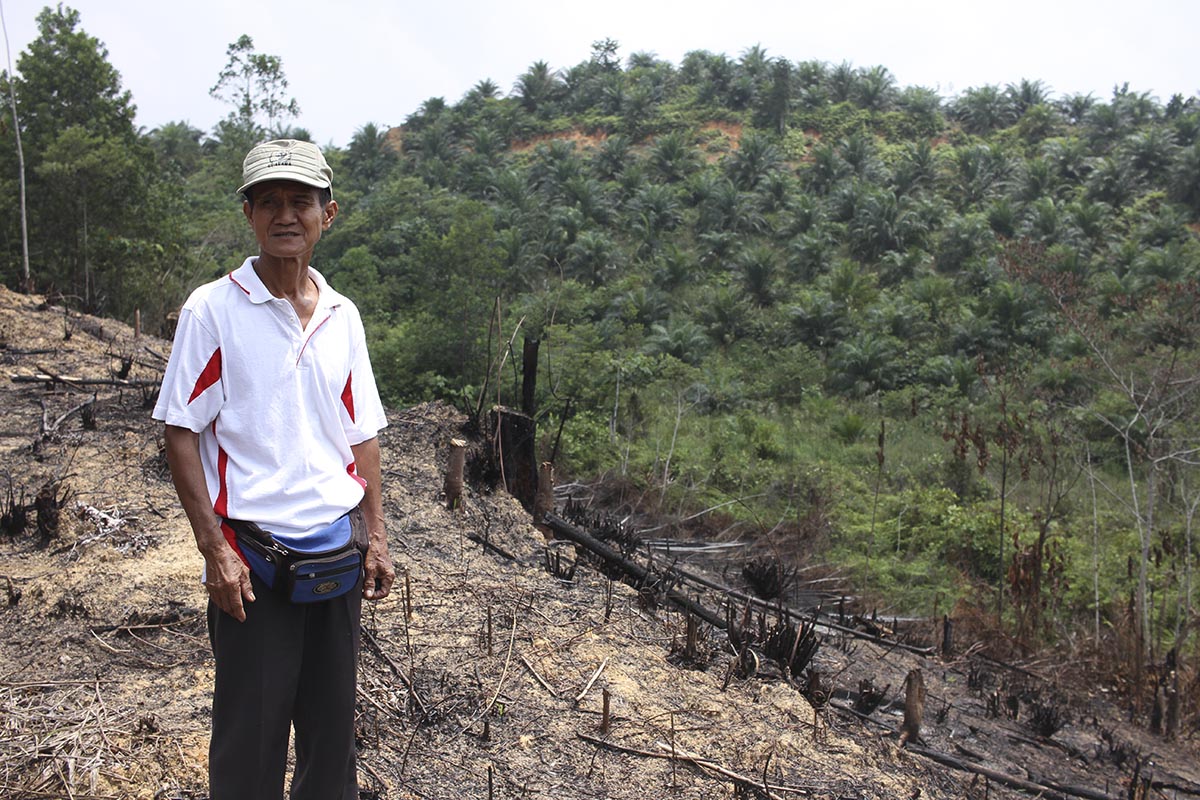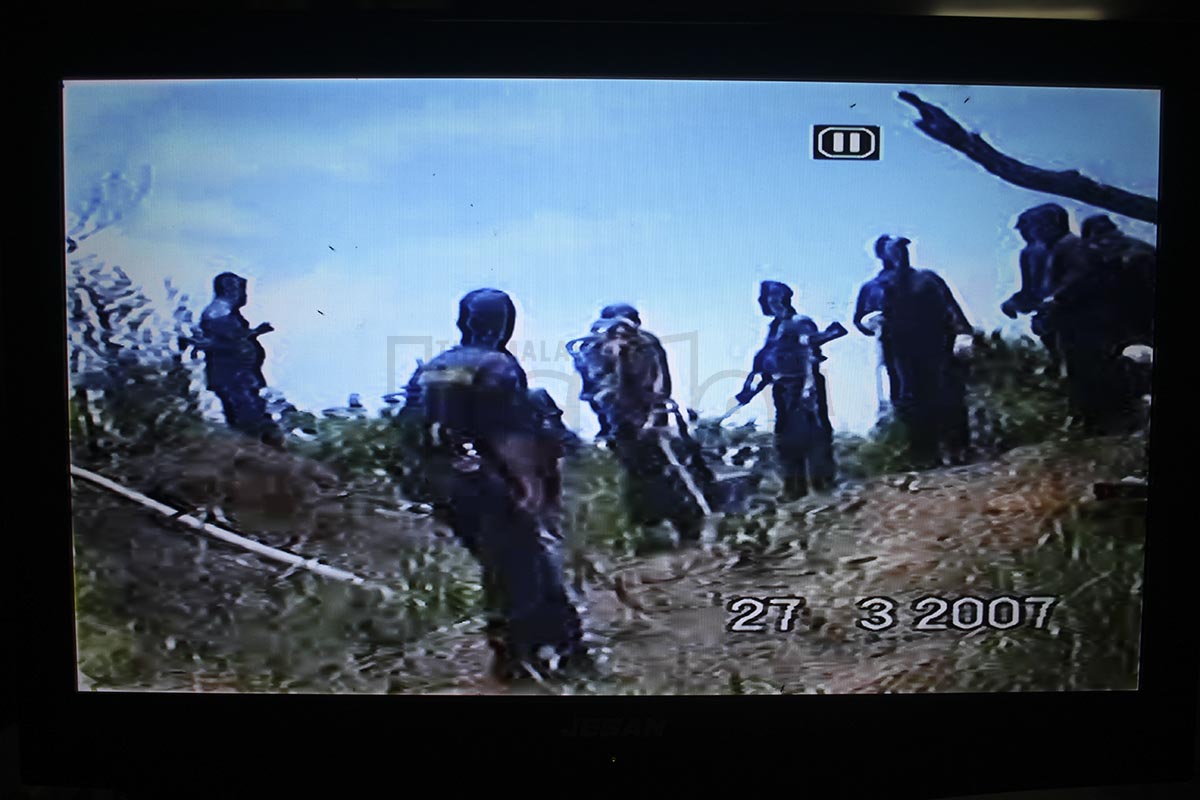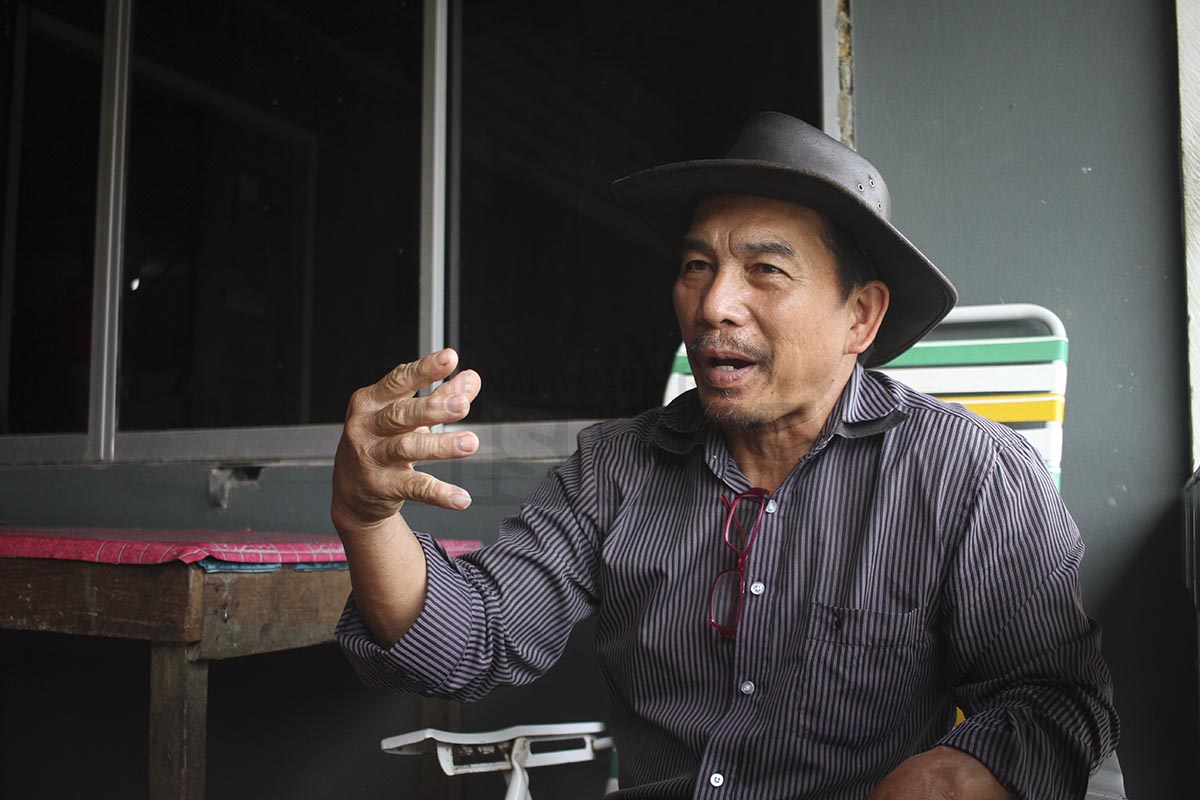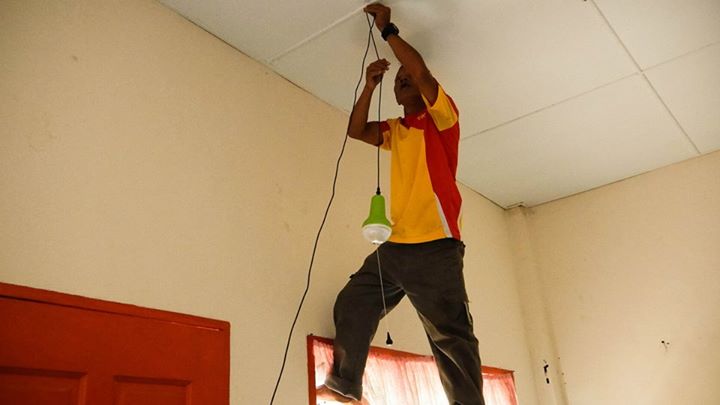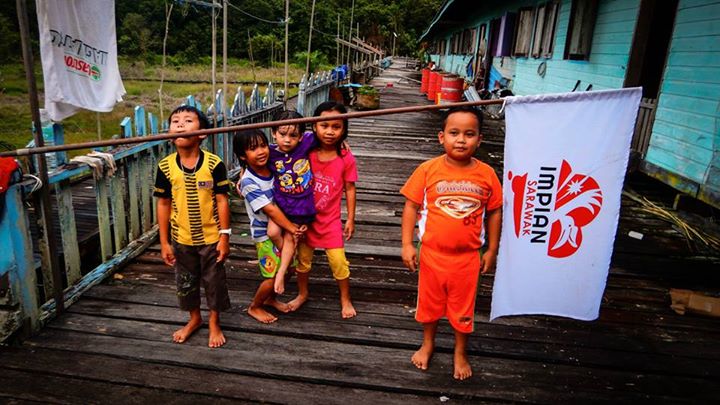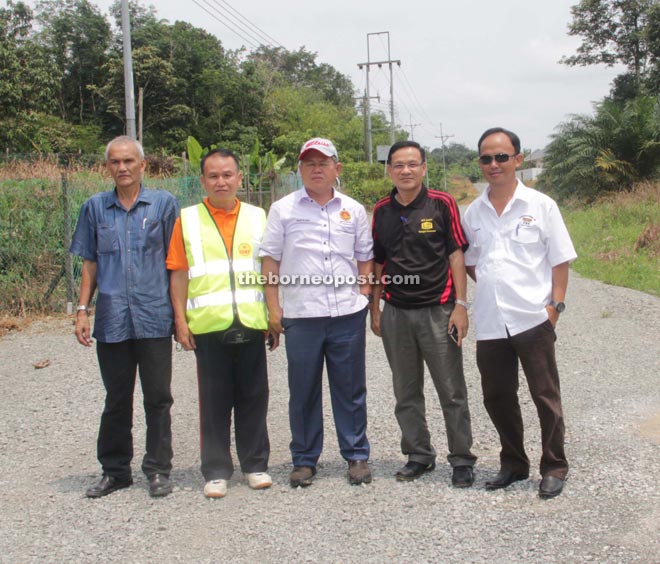Years Of Empty Promises And Underdevelopment Turn Sarawak's Natives Into Anti-BN Activists
Why are the true owners of this land still fighting to protect their lands and left to survive in such terrible conditions?
Stories of terribly underdeveloped areas in East Malaysia are becoming so common that most of us are left wondering about the unexplained gap in development in Sabah and Sarawak.
Compared to cities like Kuala Lumpur and Penang or even small towns in west Malaysia, living conditions in certain parts of Sabah and Sarawak still seems like it's stuck in the 20th century.
It is now 58 years after independence and we are just five years away from Vision 2020, but major parts of the country still remains divided and unnaturally undeveloped compared to the urban areas in Peninsular Malaysia.
While every other year or two, politicians start discussions and conversations on building yet another magnanimous tower or skyscraper in the country's capital, the number of people in East Malaysia that are surviving without basic necessities, including water and electricity supply are increasing.
Elections come and go every five years, more Malaysia plans and budgets are drawn with huge sums of allocation for the development of Sabah and Sarawak, but in reality, villages do not have water, electricity or paved roads, schools are located hours away from villages, and more ancestral lands are being taken away from the villagers, slowly but surely.
Disappointed with the lack of progress in their villages, Sarawak natives are turning into "anti-BN activists", as reported by The Malaysian Insider, yesterday, 3 November
"Kami mahu hak tanah adat (NCR) diiktirafkan (We want our native customary rights (NCR) lands to be recognized)
Image via Hornbill UnleashedIban farmer Jimmy Saban did not care much about politics until the day government men, some of them armed with guns, came to take away the land that’s been in his clan and family for generations.
Saban is one of the growing numbers of unassuming farmers, foragers and peasants who are now anti-Barisan Nasional activists, and whose fervent talks against the Sarawak government could be a factor in the coming state elections.
Saban’s story of how tribal lands are still being unscrupulously taken away counters the narrative that is being churned out by chief minister Tan Sri Adenan Satem’s administration and that of the federal BN.
In the 11th Malaysia Plan and the recent Budget 2016, Putrajaya also earmarked money for what they claimed as measures to secure NCR land. Saban and many other farmer-activists are out to challenge these claims and show that Adenan and Putrajaya do not mean what they say.
Deemed as Barisan Nasional's stronghold and "safe deposit", Sabahans and Sarawakians contributed to many of BN's election victories with their unwavering support and commitment in the past
Election campaigns are usually filled with many promises of new roads, fresh water supply, electricity, funds to develop lands for farming, among other development ideas. The political parties win the elections, usually reveal more development plans and then years and decades pass by with hardly anything done.
Should they start the projects, some are left undone like the promised road project in Pitas that was abandoned halfway through.
The villagers spent 15 years reaching out to the government to finish it and when all that failed, they ended up building their own road.
With no basic necessities, dilapidated schools that are hardly reachable, the east Malaysians have continued to be loyal to the ruling government, believing their promises or even choosing to remain apolitical
SK Long Sukang, Lawas is another unfinished school project by the ruling government
Image via The Malaysian InsiderThis image is surely scenic, but the villagers have to brace through this daily to get from one place to another because there are no proper paved roads connecting the villages and towns in most rural areas in Sarawak and Sabah
Image via Impian MalaysiaSchools in Sabah and Sarawak are not only located far away from the settlements and villages, but the journey in itself is dangerous for the young children. Instead of focusing on their studies and homework, the kids are forced to be up at wee hours in the morning, get ready in darkness, and trek to school for hours.
There are even reported cases of fatalities that happened when the children are bracing through high current rivers just to get to school.
All this to get to schools that are in ruins, with some frail enough to fall apart and injure school students.
If living without water, electricity, immediate medical facilities isn't bad enough, the ancestral lands of Sabahans and Sarawakians are being taken away from them, in the most unscrupulous ways
The people living in rural areas will either have to collect murky rainwater or walk for hours to get a heavy bucket of water
Image via Malaysia Flip Flop/BlogThe natives are known to be aa peace-loving and friendly community
Image via The National GeographicAn aerial view of a barren plot of land that was previously one of the vast rainforest in Sarawak
Image via National GeographicThe thriving local logging industry is supported by the vast rainforest of Malaysia, with most of it situated in Sabah and Sarawak. To meet the growing demands for timber, some local corporation owners resort to horrible means for the sake of increasing their profits.
The natives, the people living in rural areas in Sabah and Sarawak are mostly living in their ancestral lands and the elders of the community are mostly involved in farming, fishing and treat the forests as their home.
Sadly, it isn't only their lands that are taken away; there are multiple reported rape cases of Penan women and girls by the staffs of logging companies. They are constantly threatened and exploited by outsiders looking to make profits out of their livelihoods and lands.
Imagine being dragged out of your homes forcefully, to uproot your lives from everything you know and ordered to move from one place to another by a handful of strangers; that pretty much sums up the lives of rural communities in East Malaysia
Muk Ayun village in Bengoh, Sarawak is mostly occupied by Dayaks living in their ancestral in their centuries old ancestral lands
Image via The Malaysian InsiderThe children in rural areas go through very difficult, sometimes even life-threatening challenges on a daily basis
Image via Photograph by Julien Coquentin/National GeographicWhile it is a common knowledge that most Malaysians are originally from various parts of Asia, with most originating from China, India, and Indonesia, the natives of this country, the Orang Asli, are the true owners of the land.
But as most Malaysians comfortably own houses and continue leading their lives on their own terms, the natives of this country are fighting to protect their homes with everything they have from the greedy lawmakers and exploitative business people.
Meanwhile, the new group of anti-BN activists, claim that the reason for their sudden change in allegiance and uprising against the ruling government is because the government has "betrayed" them
Half a century after the nation's independence and the true owners of Malaysia are still fighting for their basic necessities
Image via Malaysia Flip Flop/BlogThree of the activists interviewed are from different tribes in different parts of Sarawak. But their stories are remarkably similar.
Saban and the residents of three longhouses along Sungai Pandan claimed that in 2007 they were duped by state government officers into relinquishing their claims to their ancestral lands.
“They told us to fill and sign these forms to confirm our lands these belonged to us. We signed. One week later they came and seized our land. They took the land for an acacia plantation company,” claimed Iban farmer Jimmy Saban, whose longhouse is three hours by boat from Bintulu.
The lands that were snatched away from the villagers were planted with all their crops, which happens to be their sole source of food and income
Iban farmer Jimmy Saban claims that he no longer wishes to believe BN's promises of protecting National Customary Rights (NCR)
Image via The Malaysian InsiderHe (Saban) said the 46 families lost about one third of 4,000 ha which they claimed was theirs. The land seized was planted with oil palm, pepper, fruit and vegetables, all of which was destroyed.
“This land is what I survive on. The crops feed me, my wife and my grand-daughter,” said Saban.
This nightmare happened in 2007, when men, clad in Sarawak local council uniforms barged into their homes with M-16 rifles and destroyed all the storage huts that the villagers painstakingly built
A screen shot from a video footage of police officers holding M-16 rifles while waiting for Sarawak's local council officers to destroy and seize the native's farm lands.
Image via The Malaysian InsiderThe officers went about their work as men in light blue police uniforms stood guard with M-16 assault rifles.
Female villagers cried and pleaded with some of the local council officers to stop the demolition and have pity on them.
Following this, in 2011, a group of villagers from Sarawak lodged a police report against a logging company for cheating and forging their signatures to sign away their Native Customary Rights (NCR)
The forms relinquishing claims on ancestral lands that allegedly has the forged signatures of the native leaders
Image via Hornbill UnleashedBased on a report by Hornbill Unleashed in February 2011, the company, Quality Concrete, is owned by then Chief Minister of Sarawak, Taib Mahmud's sister, Radziah Mahmud, cousin Hamed Sepawi and Mahmud’s brother-in-law and former Sarawak State Secretary Abdul Aziz Bin Husain.
According to the police report, forged and forced signatures of the land owners were used in documents that suggest that the natives are allowing the loggers to enter their lands and to log as they please.
In a separate case, the villagers still have a pending lawsuit against logging contractor Loyal Billion and timber licensee Quality Concrete, that have allegedly trespassed on their ancestral lands
The villagers lodged their police reports near the Sungai Maong police station in Kuching in 2011
Image via Hornbill UnleashedA “Deed of Settlement and Undertaking” dated 30 August 2010 and witnessed by another Kuching-based lawyer was made between “The Native Customary Rights Claimants” with almost 300 names and signatures from some 15 villages and the logging contractor Loyal Billion Sdn Bhd.
The key “settlement” involves the company paying each ‘pintu’ or household dwelling RM250 as the one-off “Ex-gratia Compensation” and the villagers “collectively and individually” agree to the extinguishment by compensation, of their NCR claims, thus allowing the company to extract all merchantable timber.
The villagers are then not allowed to make further claims against the company “for compensation or proprietary or personal rights the merchantable timber in the said area now or in the future.”
Prior to being subjected to such inhuman acts, these peace-loving natives were faithful BN supporters.
In fact, one of the them actually walked for so long during one of BN's campaigns, till one of his toenails came off.
Yaris Semayong, among other natives that are letting go of their past sentiments for Barisan Nasional
Image via The Malaysian InsiderFar in the northern highlands, Yaris Semayong (pic, right) related how he had been a committed BN supporter and activist and had canvassed for votes for Sarawak BN in the 90s.
Semayong was slowly turned off by BN when he saw how the Sarawak government did not deliver on its promises and that their state assembly representatives were self-centred.
“Then I started supporting (Sarawak PKR chief) Baru Bian, whom I knew since he was little and he has helped a lot of people with Native Customary Rights (NCR) cases."
Changing sentiments, decades after putting their devoted faith on BN lawmakers, the natives are now starting to be more politically aware and choose to no longer fall for empty promises and words
Reasons for their change in allegiance can stem from the major, life-changing developments DAP's Impian Sarawak has been working on in various rural areas in Sarawak, Sabah and other underdeveloped places throughout Malaysia.
From building gravity-feed water system, roads, to running free education and medical camps in the villages, Impian's volunteers and the DAP politicians that spearhead these projects, have managed to give these villagers a beacon of hope and changes that are actually useful for them.
Now, the people living in most of Sarawak's rural areas no longer have to walk for hours just to get a bucket of water or lead their lives in darkness, thanks to Impian's initiatives that have brought fresh water supply and electricity to all these villages.
Thoughtful changes and genuine interest in the people's lives prove to be excellent qualities that these political leaders posses.
Kuala Binyo in Bintulu will now have fresh water supply after the Impian team built them the gravity-feed water system
Image via Impian MalaysiaPrime Minister Datuk Seri Najib Razak announced during Budget 2016's tabling, last month, that RM29.2 billion will be allocated for the development of Sabah and Sarawak
Martin (third from right) with representatives from Public Works Department during a working visit at Mentung Merbok
Image via The Borneo PostIn line with that, Kedup assemblyman Martin Ben has recently revealed that, around 60 villages in the area, may get fresh water supply in the next five years, under the 11th Malaysia Plan, according to a report by the Borneo Post, yesterday.
He also talked about how all the villages in Kedup are connected by roads but some are yet to be tar-sealed and there are still villages in that area that do not have electricity.
“God-willing, these projects will be completed under the 11th Malaysia Plan,” he added.
On another note, after decades of promises and plans drawn to improve the schools in East Malaysia, most schools in rural Sabah and Sarawak are still in shambles:
